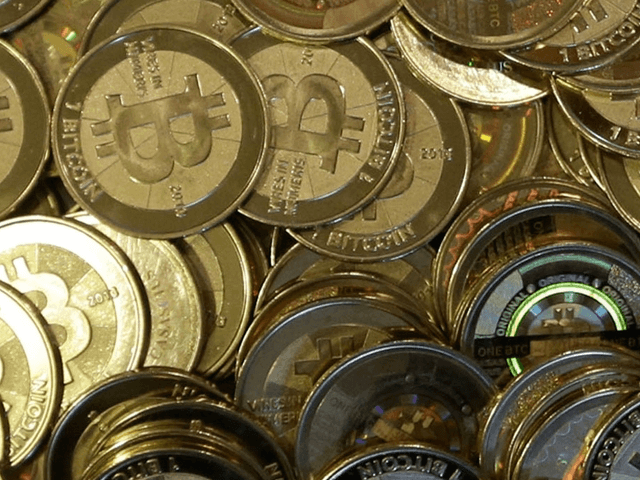Bitcoin’s open-source digital currency was designed to disrupt and cut out the manipulative architecture of central banks, such as the U.S. Federal Reserve. Originally, Bitcoin transactions went through a third party. But the virtual currency has evolved to eliminate all of the fees charged by third party financial institutions and banks. That explains why Bitcoin, with virtually free foreign transactions, is about to become a killer app in the $1 trillion remittance market.
Through a peer-to-peer (P2P) network of computers, Bitcoin currency is created as rewards to “miners” for providing the computing power to solve difficult math problems to maintain the “blockchain” of Internet transactions that validate the currency. To prevent fraud and theft, Bitcoin uses cryptographic technology. But unlike online credit cards and “PayPal” type systems that allow buyers to claim their money back, Bitcoin permanently transfers value.
Since there are only 21 million Bitcoins that may ever be “mined,” Bitcoins have become rare units of exchange and have appreciated by 2,000%. The over 39,000 retailers that accept Bitcoin payments include majors such as Amazon, Overstock.com, Target, CVS, Subway and Victoria’s Secret. With about 115,000 transactions a day, Bitcoin is creating a powerful competitor to the U.S. Congress and the Fed’s ability to employ inflation as a “stealth tax” to extrapolate wealth.
By cutting-out third-party central banks and financial institutions, Bitcoin transaction costs are almost free. “Miners” collect fees to integrate a new transaction into the blockchain, and then validate transfers. The current fee is 0.0001 bitcoin per transfer, and the time to complete wealth transfer is about 10 minutes. That compares favorable to credit cards that issue pending exchanges that may take a day to complete, or money transfer services like Western Union that take a big fee to “vouch” for the money transferred.
Remittances come from cash transfers back home by some of the more than 250 million people living outside their countries of origin, and the 750 million that live outside their ancestral communities. The remittance market was $583 billion in 2014 and could reach $1 trillion by 2020, according to the World Bank.
Every country on earth receives remittances. The largest markets were India at $71 billion; China at $64 billion; Philippines at $25 billion; Mexico at $22 billion; Nigeria at $21 billion; Egypt at $17 billion; and Vietnam at $11 billion.
Only 5 percent of remittance transactions were digital. The other 95 percent were through traditional brick-and-mortar networks such as Western Union and MoneyGram. Brick-and-mortar remitters charge about 10 percent fees to maintain their “deep local presence” worldwide.
About 80 percent of people on earth now have access to mobile phones, versus only about 60 percent that have access to working toilets, according to the UN. Increasingly, those mobile phones are being upgraded to smartphones with Internet access with penetration rates of 25 percent in India and 45 percent in China.
This revolution of access has powered a boom in digital remittance services that, by cutting-out local infrastructure, can undercut fees charged by retail brick-and-mortar incumbents.
But most of these new digital remittance services still rely on a third party bank to validate money exchanges. With about $50 billion being raked off each year in service fees, Bitcoin’s P2P decentralized network offers an opportunity for direct cash transfers to recipients–and from Bitcoin to the pre-paid digital debit cards of Google or Apple Pay.
Start-ups focused on Bitcoin remittances include BitPesa, which just received $1.1 million in VC funding to ease Bitcoin transfers from the UK to Africa; Rebit, which is developing bitcoin remittances to the Philippines; ArtaBit, for remittances to Indonesia; and Coincove, serving Latin America.
Bitcoin’s P2P potential success at cutting out central banks and financial institutions is sure to create opposition. China already forbids Chinese financial institutions from handling Bitcoin transactions.
The main argument by brick-and-mortar competitors is the lack of security from bitcoin being hacked. But with a huge cost advantage, over time many nations will be forced to come to terms with Bitcoin as a disruptive event for remittances.

COMMENTS
Please let us know if you're having issues with commenting.